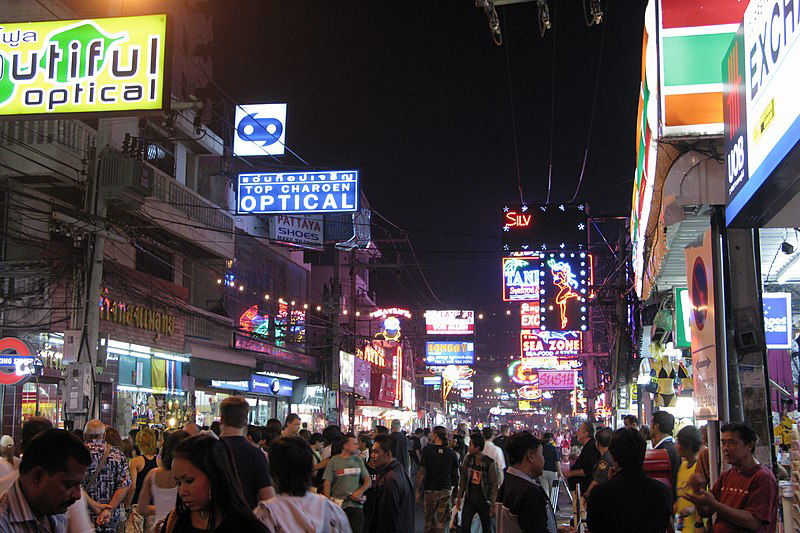Sustainable Tourism in Pattaya: How to Explore Responsibly and Ethically – Four Key Factors for Any Tourist to Keep in Mind
Located on the eastern Gulf of Thailand, Pattaya is a fascinating coastal town that has long been a preferred choice for travellers in search of sun, sea, and excitement. Renowned for its lively nightlife and stunning beaches, Pattaya is a destination that attracts millions of tourists every year. However, with great tourism comes great responsibility. This guide explores how tourists can explore Pattaya responsibly and ethically, ensuring that the city remains well-maintained, so keep reading! 1.
Support Local Businesses
Before delving into key factors for tourists in Pattaya to keep in mind, it’s essential to understand what sustainable tourism is. At the very heart of it, sustainable tourism is all about minimising the negative impacts of tourism on a city’s environment, culture, and local economy, while making maximum use of its positive contributions. Sustainable tourism involves making conscious choices that vastly support conservation efforts, respecting local traditions, and enhancing the well-being and lives of those in local communities. The first key factor and one of the best ways to contribute positively to Pattaya’s economy is by supporting the town’s local businesses. From dining at family-owned restaurants to souvenir and clothes shopping at local markets and boutiques, a tourist’s spending can have a significant impact on the local economy and uplift the lives of local communities. When one buys local, they help sustain the livelihoods of residents and promote the preservation of traditional crafts and culinary practices.

© Vyacheslav Argenberg / http://www.vascoplanet.com/, Pattaya, Walking Street at night, Thailand, CC BY 4.0
2. Respect Local Culture and Traditions
Rich in cultural heritage, Pattaya offers travellers a wide range of temples, markets, and festivals that are a reflection of this coastal town’s unique identity. It is vital that travellers show respect for local customs by dressing modestly when visiting religious sites, removing footwear before stepping into temples, and being extremely mindful of local etiquette. Tourists can consider learning a few Thai phrases before their trip to Pattaya, as this can show respect and build positive interactions with locals.
3. Reduce Plastic Footprint and Conserve Water
A rather significant environmental concern in Pattaya is immense plastic pollution. To reduce or minimise their plastic usage, tourists are recommended to carry a reusable water bottle, shopping bag, and utensils. Many local businesses in Pattaya have started to reduce their plastic usage by offering useful alternatives, so it is vital that travellers support these initiatives whenever possible. Water scarcity can be a recurring issue in Pattaya, especially during the dry season. Tourists should be mindful of their water usage by taking shorter showers, reusing bath and face towels at hotel/villa bathrooms, and turning off taps when not in use. Similarly, it is vital that energy is also conserved, by switching off lights, air conditioning, and electronic devices when tourists leave their accommodation. The first step in a tourist’s journey towards responsible tourism in Pattaya begins with where they choose to stay. Opt for an eco-friendly resort in Pattaya, Thailand, that prioritises sustainability, such as Avani Pattaya Resort.
4. Respect the Marine Environment and Engage in Responsible Wildlife Tourism
Pattaya’s ocean waters boast a stunning marine environment, complete with coral reefs and diverse marine life. However, this marine ecosystem is fragile and quite vulnerable to damage. When tourists are engaging in water activities such as snorkelling or diving, they should choose operators that strictly adhere to responsible practices. They should avoid touching or stepping on corals and never collect marine life as souvenirs. Tourists can also participate in beach clean-up activities to keep shores free from litter that could make its way into the sea. Another popular attraction in Pattaya is wildlife tourism, but it’s of utmost importance that tourists’ interactions are ethical and do not pose a threat to animals. They should avoid attractions that promote unnatural behaviours or captivity for entertainment. Instead, tourists should consider visiting sanctuaries that prioritise animal welfare and rehabilitation.
